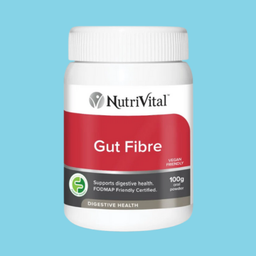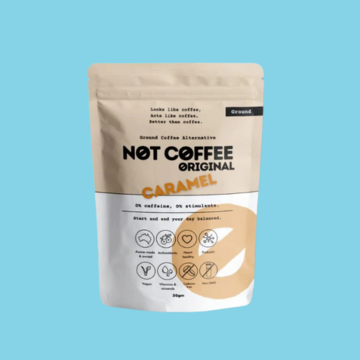The Greek island of great gut health (and how you can be like them)
On his third trip to the small Greek island of Ikaria, Go Vita podcast host, and CEO of The Wellness Couch podcast network, Marcus Pearce, had a conversation that blew his mind. In Ikaria, the Greek Blue Zone known as “the island where people forget to die,” poor gut health was not a problem. Why? Read on to find out.
Is it just me or does it feel like almost everyone you speak to has a gut problem? From indigestion to food intolerances, skin problems to autoimmune conditions. Poor gut health seems to be wreaking havoc with humanity.
The CSIRO reports that 50 per cent of Australians experience unpleasant symptoms such as bloating, gas and constipation. Along with one in seven experience distressing symptoms. In America over 70 million people have a digestive disease of some kind.
But whilst it’s almost at epidemic levels in the West, traditional cultures like the Greek island of Ikaria has no such epidemic.
Each year my 100 Not Out co-host Damian Kristof and I take a small group of people to Ikaria. We stay in the village of Nas and our host is Thea Parikos, owner of Thea’s Inn & Restaurant. Thea hosted Blue Zones co-founder Dan Beuttner and the National Geographic team whilst they did their research into Ikaria’s remarkable longevity and quality of life. Ikarians have an average life expectancy of 90 and experience 80 per cent less dementia, 50 per cent less heart disease and 20 per cent less cancer than the west.
“We don’t have a gut health problem on Ikaria,” remarks Parikos. “I know people who would prefer to avoid a certain bean because it sits heavy on their stomach, but not because there’s an allergy or a problem. As far as allergies go, I haven’t heard of any gluten allergies or any other food allergies in Ikaria.”
Why is that? Here are three foundations of the Ikarian lifestyle that we know improve gut health.
1. Stress reduction
Stress suppresses our digestion, particularly our absorption of nutrients, and a large part of our stressful lives is our busy-ness and tendency to rush. “Ikaria time does seem to flow differently,” according to Parikos. “(In the west) you have all these things to save you time but you don’t have enough time for anything! “For us time isn’t an enemy, it’s not a boss. It’s a guide.”
The lesson here is not necessarily to slow down your pace of life or move to Ikaria (although it is an incredible place). Instead, prioritising activities that bring you calm is key. Whether it’s breathing, meditating, going for more walks, spending more time with friends and less time on social media and Netflix, the key is to have calming activities a part of your daily rhythm.
2. SLOW Diet and Lifestyle (including wine, bread, bone broth, fibre)
“We have a very healthy, balanced diet in Ikaria. We have a lot of veggies, a lot of fibre. I think we have a very healthy combination of food,” says Parikos. The Ikarian diet is the quintessential Mediterranean diet with a focus on SLOW foods – Seasonal, Local, Organic Wholefoods. Travellers don’t need to look for organic certification on their food because Ikarians don’t use anything prepacked. “We’re not big into pre-cooked foods,” Parikos says. “We figure, if it’s in a can then something has been done to it.”
Just hours before last year’s local festival – known as a panygiri – we helped prepare the food. There was more than 160kg of potatoes to peel (Ikarians love hot chips), 400kg of goat to cook, 400 litres of wine to prepare and dozens of large Greek salads and tzatsiki to make. The gut-healing goat broth was served to patrons early to line the stomach so they could eat, drink and dance for longer. The locally made, preservative free red wine, complete with up to 11 strains of healthy gut flora, was consumed with a dash of water and only enjoyed in the company of friends. Ikarians frown upon drinking on an empty stomach, drinking alone or getting drunk, yet encourage the social lubricant and extra dancing skills that wine provides!
Every single ingredient had been grown on the island. Many Ikarians have goats, nearly everyone grows their own grapes and each landowner grows their own food and gut-healing herbs. Furthermore, given their biodynamic farming methods, Ikarians have no use for microbiome-destroying pesticides, herbicides, fungicides or insecticides. Believe it or not, not even a fully blown supermarket exists on the island (there is very little multinational presence in Ikaria).
Gut-healing movement
Regular exercise is proven to improve microbiome function (as little as 30 minutes per day), which the Ikarians get in spades. Not that they set their alarms for a 6am yoga or CrossFit class. There is not one piece of flat land in Ikaria, so hill walking is a staple lifestyle activity. Ikarians prefer to walk instead of drive, and if they’re not swimming in the crystal clear Aegean sea, hiking, or dancing with friends, they’re working hard tilling the soil or harvesting their sweet strawberries or juicy tomatoes.
100 Not Out Mediterranean Longevity Experience 2020
Trip 1: Sardinia August 19 – 28
Trip 2: Ikaria August 30 – September 8
Attendees can join one or both Experiences.
For more info and to apply go to www.100notout
3 spots remaining for each trip (max group size 16)
References on request

